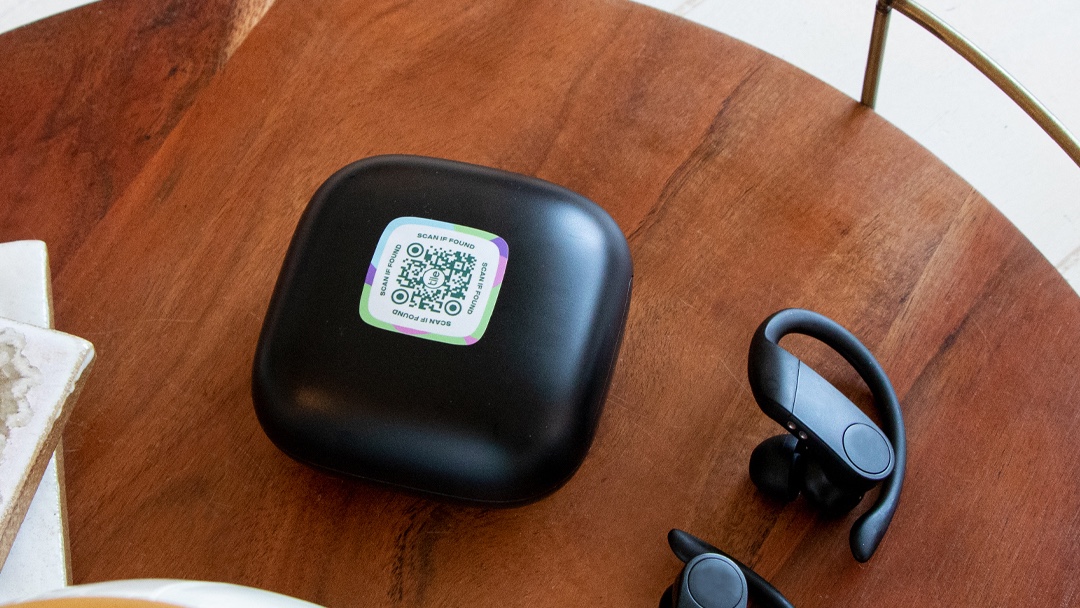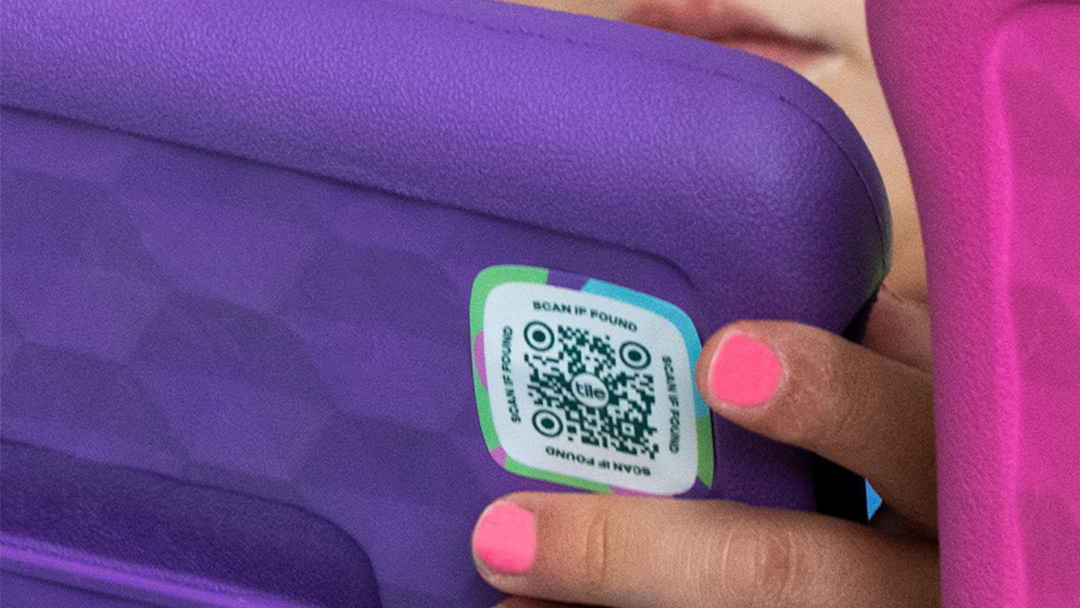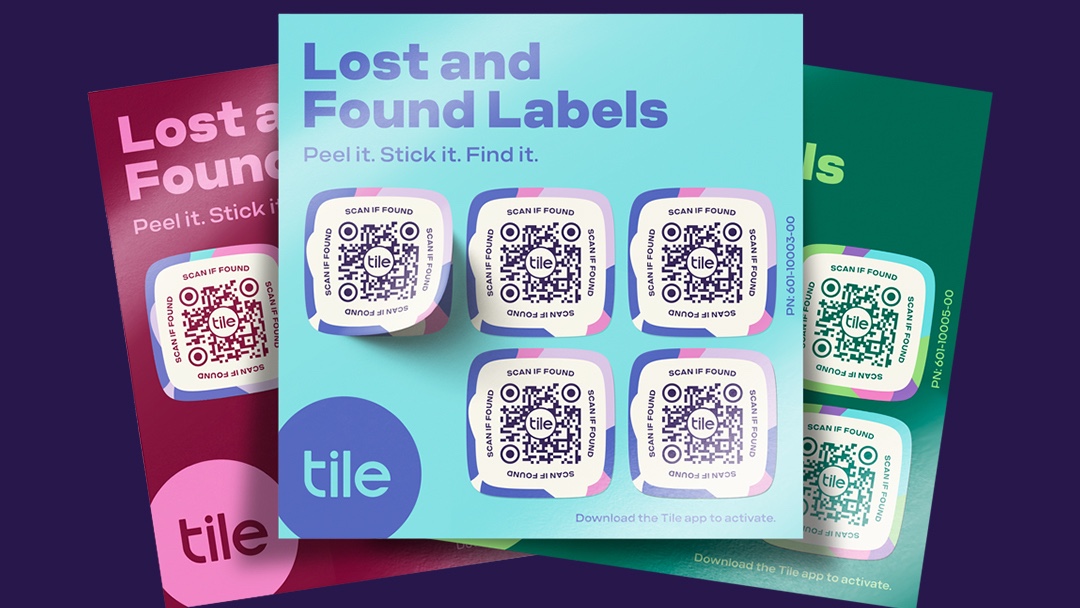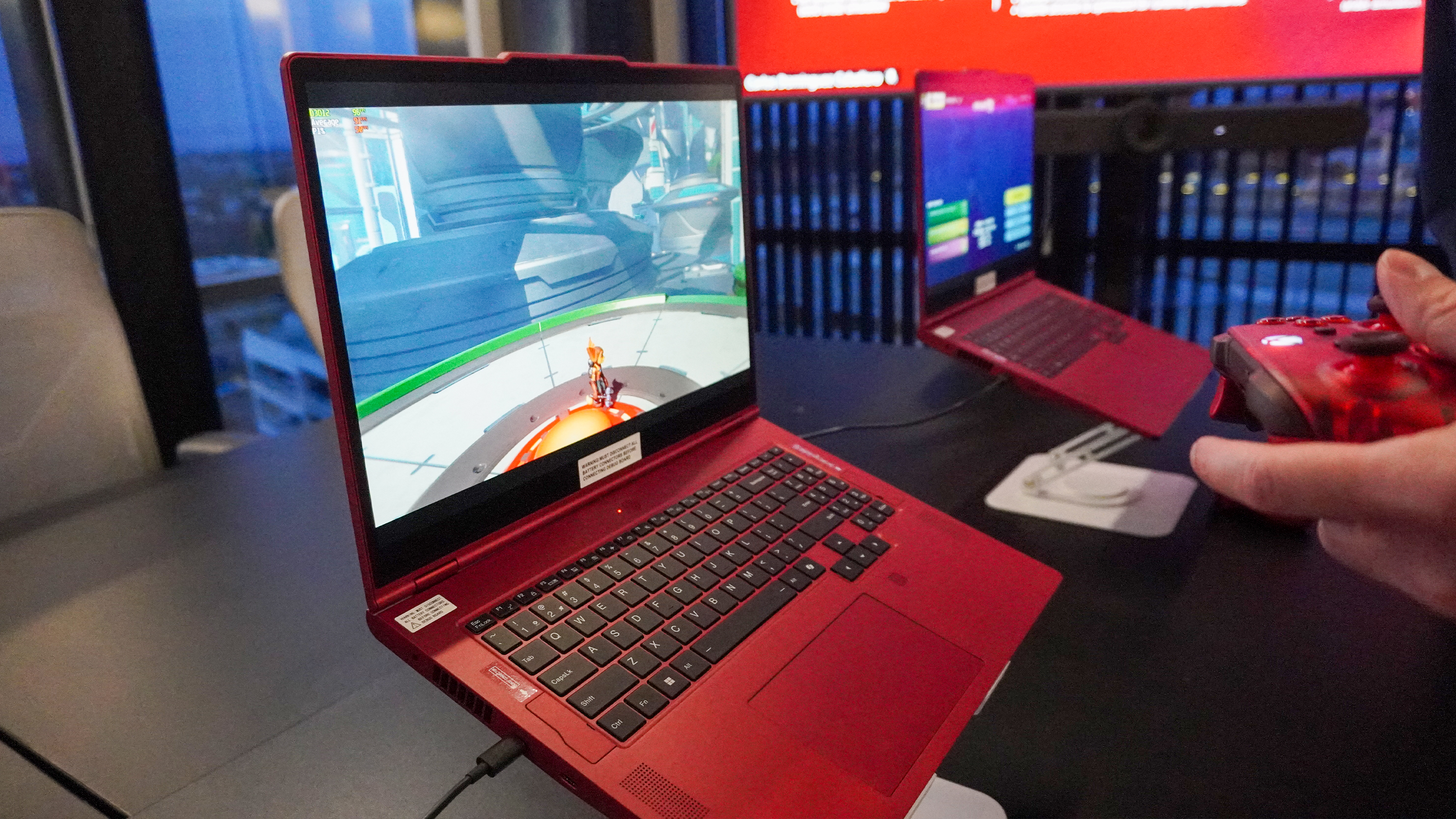Tile turns to QR codes to fight Apple AirTag
Tile's new Lost and Found Labels stick to your valuables

Tile is moving beyond Bluetooth to help you track down your lost stuff.
The company, which dominates the tracker scene by offering the best key finders, has just announced its new Tile Lost and Found Labels. These are adhesive labels with QR codes that you paste onto objects. If those objects are lost, anyone who finds them can scan the QR code to look up the contact information you've provided.
This is a different approach from Tile's other tracking products, like the Tile Pro and Tile Mate. Those key finders use Bluetooth to connect to your phone, with an app that lets you pinpoint the tracker's location when you're in range. If the item gets lost, a Notify When Found feature enables other Tile owners who pass by the lost object to send you location data anonymously.
That approach works for items like keys, wallets and backpacks where you can attach and insert Tile's various Bluetooth trackers. But on some items, it's simply not convenient or feasible to attach a physical tracker. Think items with smooth surfaces like books, mugs and earbud cases. That's where the adhesive Lost and Found Labels come in.

Tile has worked with QR codes previously, adding them to the back of trackers last year to help with the return of lost items. But the rise in popularity of QR codes during the Covid-19 pandemic got the company thinking about other ways to incorporate QR codes into helping you track down lost items and came up with the Lost and Found Label concept.
Using QR codes to provide people who find lost objects with contact info only works if the person knows to scan the QR code in the first place. That's why the Lost and Found Labels include a prominent Tile logo, as the company is banking on its name recognition to prompt people to scan the code.
Tile is selling its Lost and Found Labels in forest, plum and teal colors. You can buy a 3-pack of labels from Tile for $14.99.
Get instant access to breaking news, the hottest reviews, great deals and helpful tips.

While Tile continues to dominate the key finder market, it's faced stepped-up competition in recent years, including challenges from Apple and Samsung, which have come out with trackers of their own. Apple's AirTag, for example, taps into Ultra Wideband technology, which offers more precise location data than Bluetooth alone.
Last year, Tile had said it planned to release its own Ultra Wideband-based tracker, the Tile Ultra, at some point in 2022. A spokesperson tells me that product remains in Tile's pipeline, but that the company is current focusing on integrating Tile and Jiobit, which makes one of the best GPS trackers for kids. Both Tile and Jiobit were bought by Life360 last year.
Philip Michaels is a Managing Editor at Tom's Guide. He's been covering personal technology since 1999 and was in the building when Steve Jobs showed off the iPhone for the first time. He's been evaluating smartphones since that first iPhone debuted in 2007, and he's been following phone carriers and smartphone plans since 2015. He has strong opinions about Apple, the Oakland Athletics, old movies and proper butchery techniques. Follow him at @PhilipMichaels.
 Club Benefits
Club Benefits






